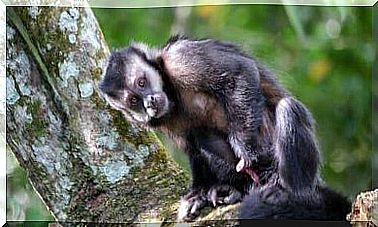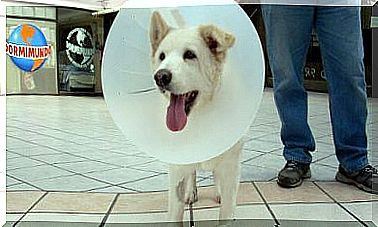The Asian Wasp Poison: Everything You Need To Know
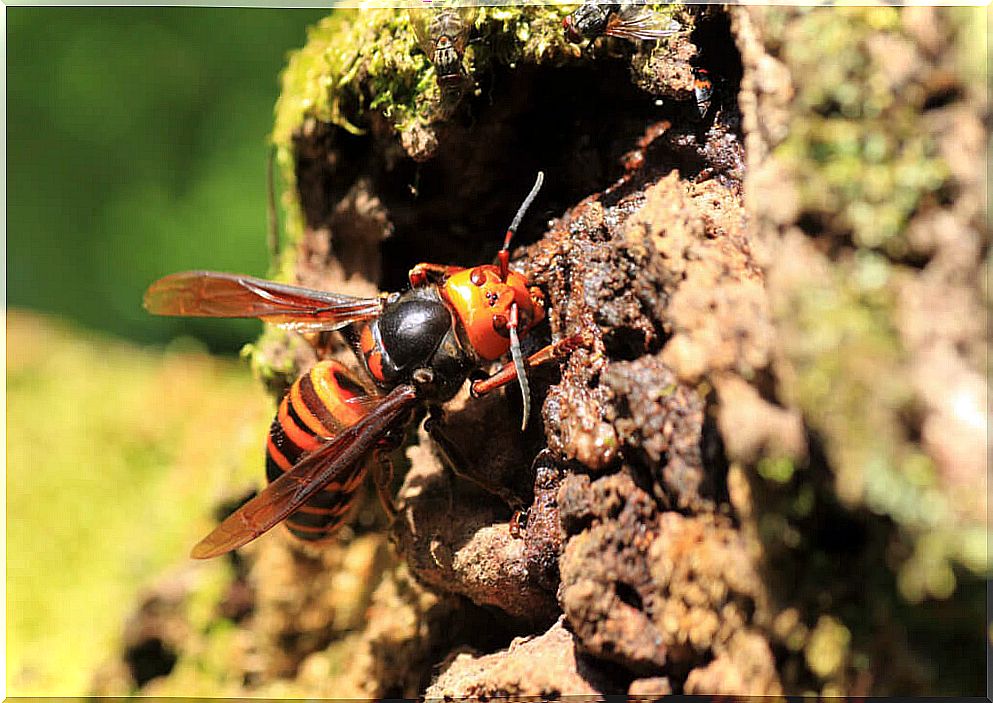
Originally from Asia, the Asian wasp ( Vespa velutina ) has been successful in its multiplication and expansion. These Hymenoptera have managed to reach various regions of Europe and America, so their importance as a pest is increasing. In addition to population dynamics, do you know how Asian wasp venom affects humans?
The number of encounters with this wasp is increasing around the world, as is the number of cases of stings. This hymenopteran managed to adapt to the climates of Europe, so it is necessary to be careful when finding a specimen.
Who is the Asian wasp?
The Asian wasp is dark in color, with an orange-yellow head and black bands along the body. Its size is approximately 3 centimeters, so it is quite a big wasp compared to the others. On the other hand, it is an invasive species capable of displacing others and affecting the ecosystem.
This wasp is neither more nor less aggressive than any other winged hymenopteran, but it is capable of stinging several times. Unlike bees, wasps do not lose their sting, and can introduce it as many times as necessary into their aggressor.
This situation implies that the poison produced by these animals was created to be lethal and as a means of protection. In any case, the lethality rate of the toxins varies between different wasp species (Aculeata).
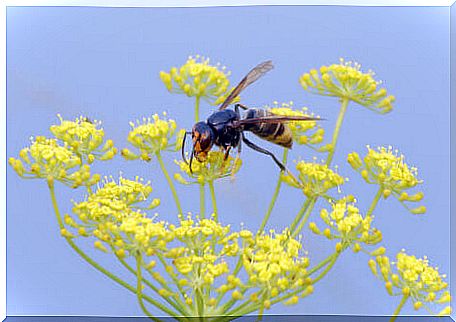
What is their poison made of?
Thanks to several scientific studies, it was possible to analyze the composition of the Asian wasp venom. It was identified that the venom of this hymenopteran has some similarity to that of snakes, with components that can affect blood clotting and cause hemolysis in the host.
In addition, a certain amount of the venom contains neurotoxins, which affect the nervous system of its victims. All of these components are intended to cause inflammation, pain and widespread tissue damage. In this way, the Asian wasp can attack its prey and defend itself against predators.
Are humans at risk after a bite? Fortunately, due to the difference in weight and size compared to other animals, no. However, we must keep in mind that this does not mean that your bite is painless.
A wasp with a deadly sting?
Despite what you might think, Asian wasp venom is not entirely lethal to humans. The sting can cause severe pain and swelling in the affected area, which does not mean it is harmful to health. However, there is one big exception: the poison can be lethal if the person is allergic.
The sting of the Asian wasp is not dangerous, what worries you is the allergic reaction it can trigger. This factor depends on each person, so it is quite difficult to guess who might be allergic and who might not. Only between 0.4 and 0.8% of people who take a bite have an allergic reaction.
In addition, the Asian wasp sting releases pheromones that incite other wasps to attack. There is the case of a man who was wounded with 18 stings from this wasp and, fortunately, survived to tell his story. The factor that determines whether or not the situation is life threatening is the time it takes to receive medical attention.
What to take into consideration?
Unfortunately, there are already records of deaths from Asian wasp stings. This doesn’t mean it’s something you should be afraid of, just be careful when watching this species in the wild.
For comparison purposes, the average number of deaths from European bee stings ( Apis mellifera ) in the United States is 40 to 50 cases. The Asian wasp causes fewer than 20 deaths a year in Europe and only 40 in Asia, its place of origin.
The best way to prepare is to be aware that wasps are defending themselves against their attackers. So don’t try to provoke, manipulate or capture them yourself. If you don’t bother them, they won’t try to bite: injecting toxins is a very valuable energy expenditure for them.
More than just poison
It is true that Asian wasp venom poses some health risk, but it can also be useful for medicine. Due to its properties, the poison could be used as a medicinal tool in the treatment of some diseases, such as cancer.
There are still no products derived from bee or wasp venom, however, there are several promising studies that are working on this. Having a new poison available, with different characteristics, expands the opportunity to obtain medicines that can be used to treat different diseases.
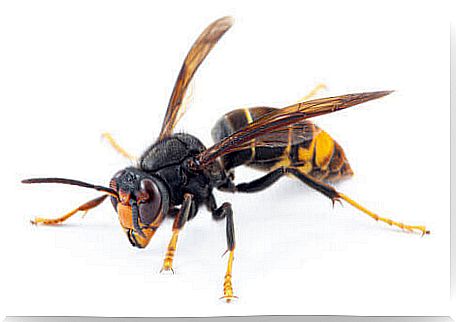
The Asian wasp is not a major threat to human health, but that doesn’t mean it’s harmless. Remember that any species, however small, will always try to defend itself from any aggression. Don’t expose yourself, take care of yourself and respect the space we all inhabit.
